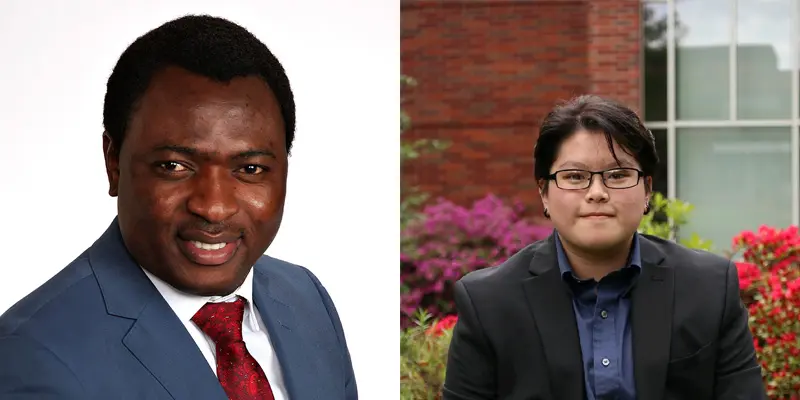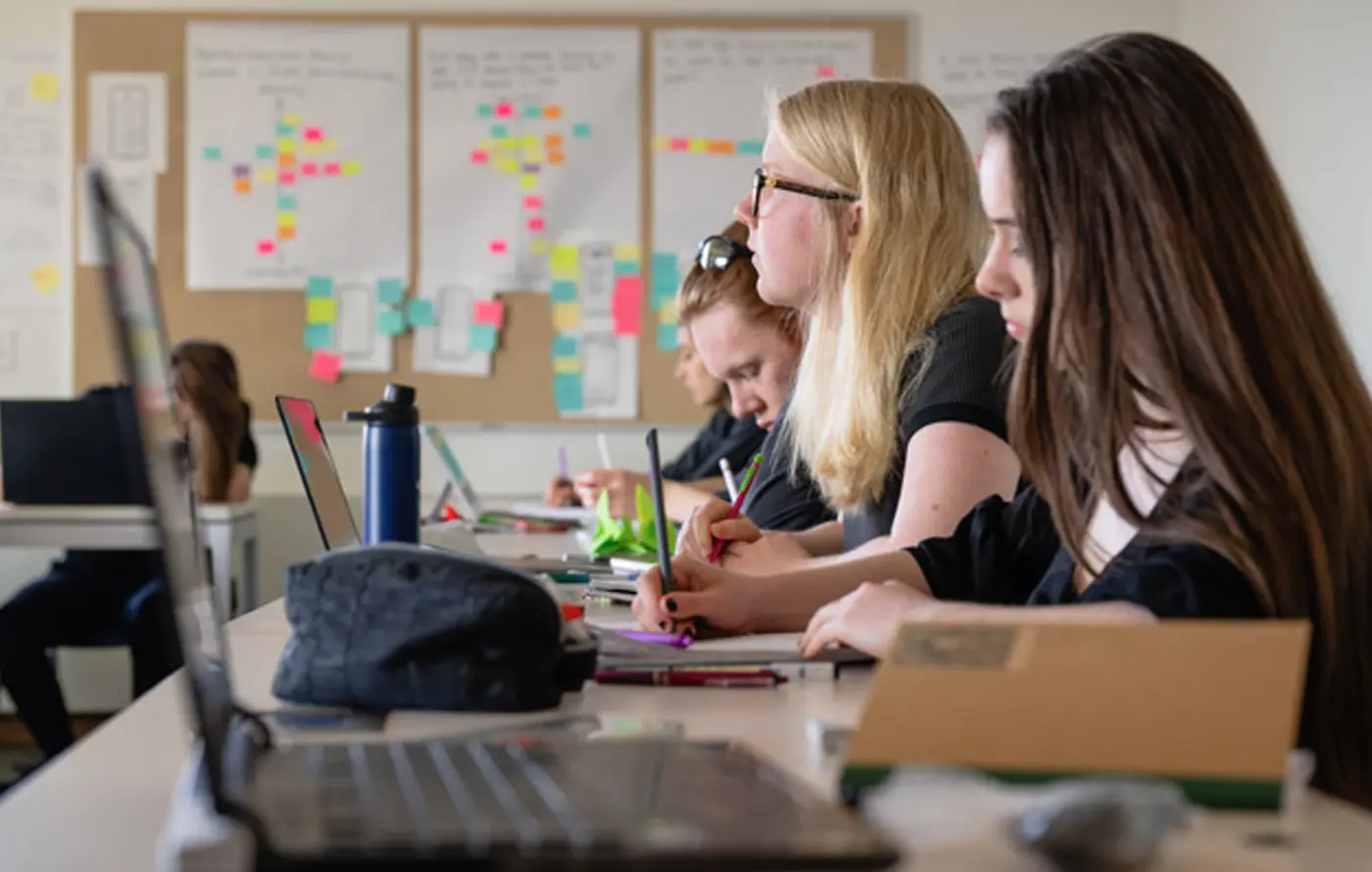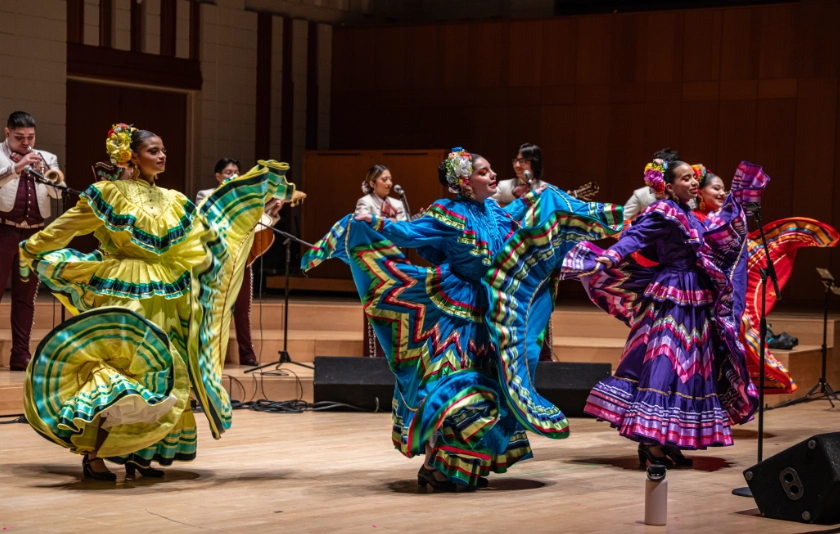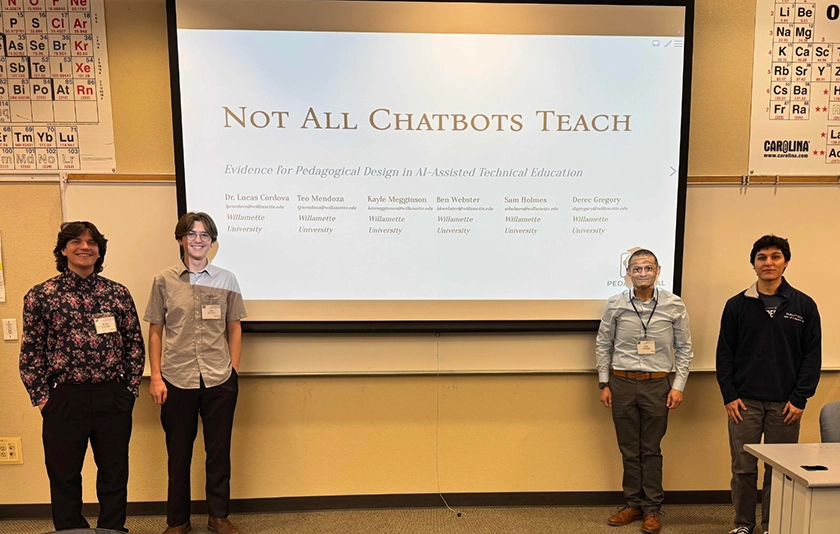Assistant Professor of Computer Science Fred Agbo has two priorities when it comes to his ongoing research into Generative AI (GenAI): transform computer science education and involve his students each step of the way. Most recently, Agbo and recent computer science graduate Chris Olivia BA‘24 published an article synthesizing the literature on GenAI’s application in computing education in the open access Computers and Education journal.
“The most encouraging finding is the enormous evidence that GenAI can foster a personalized learning experience for students,” Agbo says. “Students can receive immediate feedback, better understand complex error messages, and iteratively refine their code — support that was previously difficult to scale.”
As is standard with systematic literary review, their project involved screening hundreds of articles before rigorously coding and analyzing the resulting 78 relevant papers. They then used the accumulated data to explore GenAI tools in computing education and weigh the pros and cons of its application. “Conducting a systematic literature review on GenAI entailed reading several articles, which in itself would afford students to develop AI literacy,” Agbo says. “This is paramount for students preparing for the industry-aligned professional landscape or graduate study.”

Olivia, who also curated and edited the drafts of the paper, used the research opportunity to explore his passion for accessible and inclusive computing research for all. “I believe as technology becomes more integrated in education in general, it is important for students of any age to have access to computing education,” he says.
Before embarking on their research project, Olivia previously took Agbo’s Foundations of Human-Computer Interaction and Web Development Interaction courses, both of which investigate methods of improving user experience for computing systems and websites. Olivia also worked as a section leader for Agbo’s Introduction to Python course.
“I really appreciated the chance to learn from faculty outside of the classroom: it gave me more insights to other opportunities in Computer Science,” says Olivia, who now works for Willamette Integrated Technology Services (WITS) as a End User Computing & Audio-Visual Technician. “I gained a lot more experience conducting research and reading research papers, and I learned a lot about AI utilization in computer science education.”
“I intentionally seek to include students in my research,” Agbo adds. “I feel that one way to instill academic values on the students we teach is to provide some sort of experiential learning, which research provides. As the supervisor, my role was to conceptualize the study and guide the methodology, but Chris was instrumental in the timely execution.”
As Agbo uses this study to explore further possibilities of incorporating GenAI into computer science learning, Olivia stands out as an exceptional example of the mutual benefit of student-faculty collaborations.



